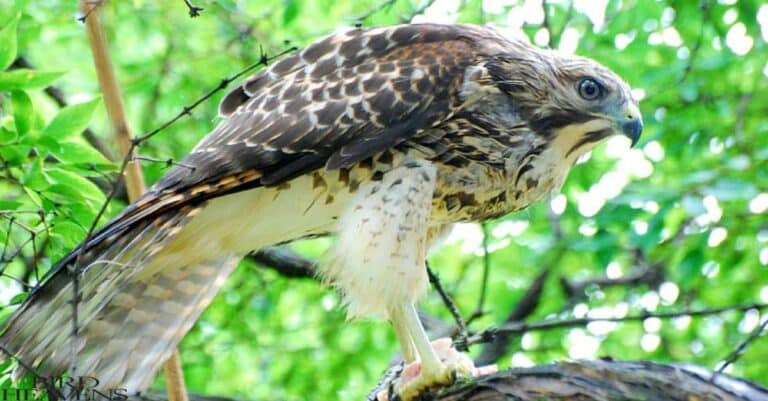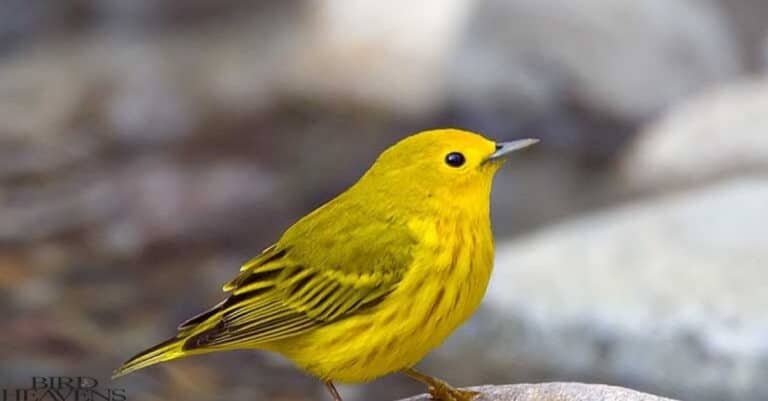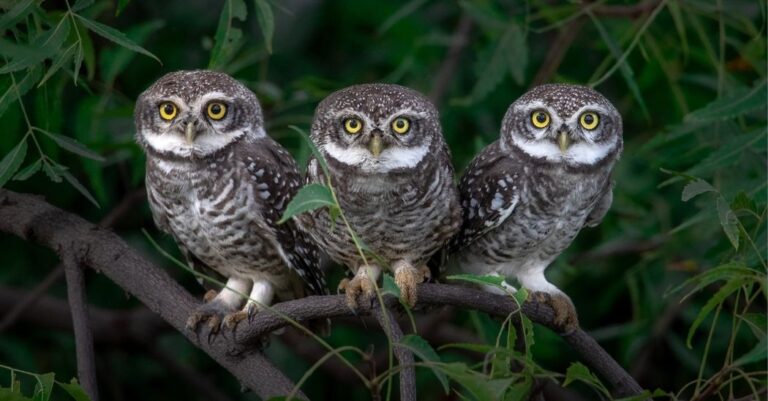Do Hawks Hunt At Night – The Truth Revealed
Hawks don’t hunt at night. They’re diurnal raptors, active during daylight hours. Their eyes are adapted for daytime vision, lacking the specialized features nocturnal birds have for night hunting.
Hawks roost after dark, conserving energy. While they might move if disturbed, true hunting is reserved for daytime when their prey is active and visible to their keen eyesight.
The Nocturnal Mystery of Hawks
Hawks are often seen flying in the sky, searching for prey during the day. But what about at night? Do they hunt when it’s dark, or do they rest? Some people think hawks might hunt at night, like owls.
This is because they may have heard noises in the dark or seen shapes in the moonlight that looked like hawks. These experiences make people wonder what hawks do when the sun goes down.
Hawk Classification: Diurnal Raptors
To understand hawks’ hunting habits, we first need to know what kind of birds they are. Hawks fall into a group called diurnal raptors. But what does that mean?
What Are Diurnal Birds?
Diurnal birds are those that are active during the day. They’re the early birds that catch the worm, so to speak. These feathered friends wake up with the sun and go about their business while it’s light out.
Some examples of diurnal birds include:
- Robins
- Blue jays
- Sparrows
- Eagles
- And, you guessed it, hawks!
Hawks :The Daylight Hunters
Hawks are prime examples of diurnal raptors. They’re built for daytime hunting, with sharp eyes that work best in bright light. Unlike their nocturnal cousins, the owls, hawks aren’t equipped for nighttime shenanigans.
| Feature | Diurnal Raptors (Hawks) | Nocturnal Raptors (Owls) |
| Active Time | Daytime | Nighttime |
| Eye Type | Small, dark eyes | Large, light-sensitive eyes |
| Hunting Style | Rely on sight | Rely on hearing and sight |
| Typical Prey | Small mammals, birds, reptiles | Small mammals, insects |
Hawk Vision: Can Hawks See In The Dark?
Hawks’ eyes are truly something special. They’re like high-powered binoculars, perfect for spotting tiny movements from way up in the sky. But this superpower comes with a catch – it only works well in good light.
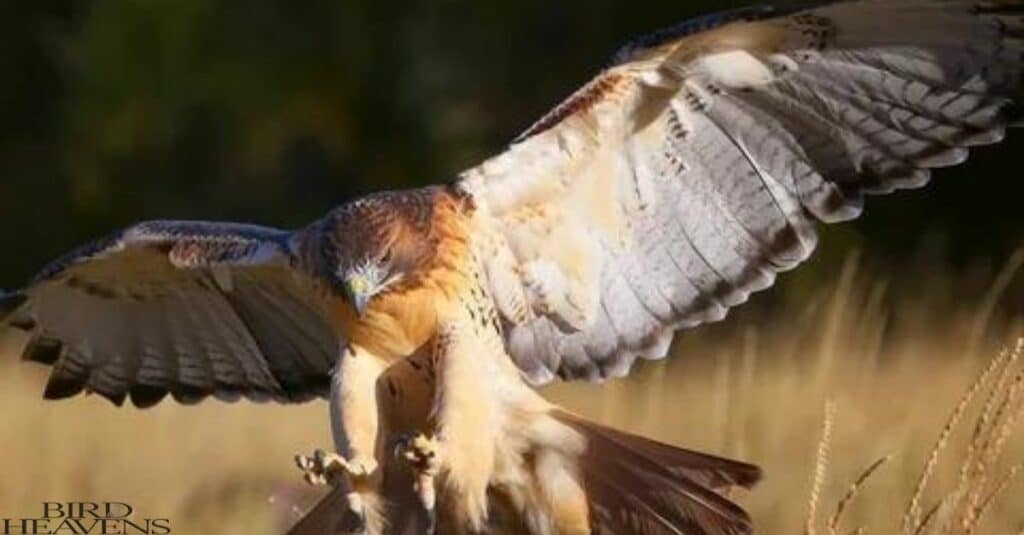
Adaptations for Daytime Hunting:
Hawks have several cool features that make them ace daytime hunters:
- Sharp color vision: Hawks can see a wider range of colors than humans, helping them spot camouflaged prey.
- High density of light-sensitive cells: Their retinas are packed with cones, which work best in bright light.
- Large eyes: Relative to their body size, hawks have big eyes that let in lots of light.
- Telescopic vision: Hawks can zoom in on distant objects, like a built-in zoom lens.
Limitations in Low Light Conditions:
While hawks have amazing eyesight during the day, they struggle when the light fades. Here’s why:
- Fewer rod cells: Hawks have fewer of these light-sensitive cells that help with night vision.
- No tapetum lucidum: Unlike owls, hawks lack this reflective layer that boosts night vision.
- Fixed eye shape: Hawk eyes can’t adjust as well to let in more light in dark conditions.
These limitations mean that when night falls, hawks are at a big disadvantage. They simply can’t see well enough to hunt effectively in the dark.
Typical Hawk Hunting Hours:When Do Hawks Hunt?
So when do hawks hunt? Let’s break down their daily schedule.
Peak Activity Times:
Hawks are most active during daylight hours, with two main hunting periods:
- Early morning: Many hawks start their day at dawn, taking advantage of prey animals that are just waking up.
- Late afternoon: As the day cools off, hawks often have another burst of hunting activity.
Hawks are opportunistic hunters. They’ll seize any chance to catch prey during daylight hours, says ornithologist Dr. Jane Hawkins
Factors Influencing Hunting Schedule:
Several things can affect when hawks choose to hunt:
- Weather: Sunny days are ideal for hunting, while rain or heavy cloud cover might delay hunting trips.
- Season: In winter, hawks may concentrate their hunting in the warmer midday hours.
- Prey activity: Hawks time their hunts to when their favorite prey is most active.
- Nesting needs: During breeding season, hawks may hunt more frequently to feed their chicks.
You Might Like >>Crane Vs. Heron
What About Nighthawks?
Now, you might be thinking, “Wait a minute! I’ve heard of nighthawks. Don’t they hunt at night?” Well, here’s where things get interesting.
What Are Nighthawks?
Despite their name, nighthawks aren’t actually hawks at all! They’re part of a group called nightjars. These birds are active at dawn, dusk, and sometimes at night, especially when there’s a full moon.
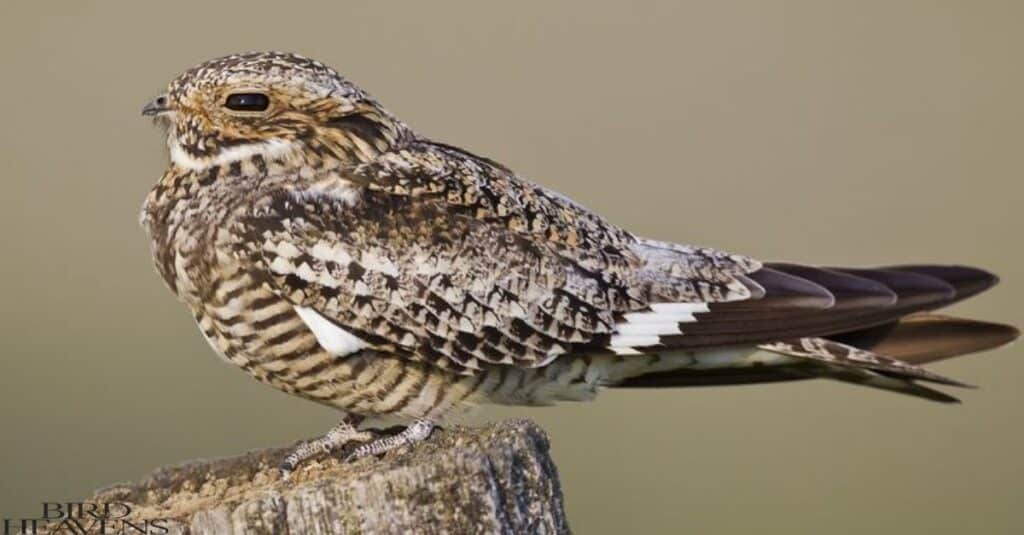
How Nighthawks Differ from True Hawks:
Nighthawks are very different from the hawks we’ve been talking about:
- Diet: They mainly eat flying insects, not small mammals or birds.
- Hunting style: Nighthawks catch prey in flight, unlike true hawks that swoop down on ground-based targets.
- Appearance: They have wide mouths for catching insects and camouflaged feathers, unlike the sharp beaks and talons of true hawks.
So while nighthawks might be out and about after dark, they’re not the same as the diurnal hawks we’re focusing on.
Hawk Behavior After Dark
When night falls, hawks don’t suddenly turn into night owls. Instead, they have their own nighttime routines.
Roosting Habits:
As the sun sets, hawks look for a safe place to spend the night. This is called roosting. Here’s what hawk roosting looks like:
- They often choose tall trees or high perches for safety.
- Some hawks roost alone, while others might gather in small groups.
- They’ll puff up their feathers for warmth and tuck their heads under a wing.
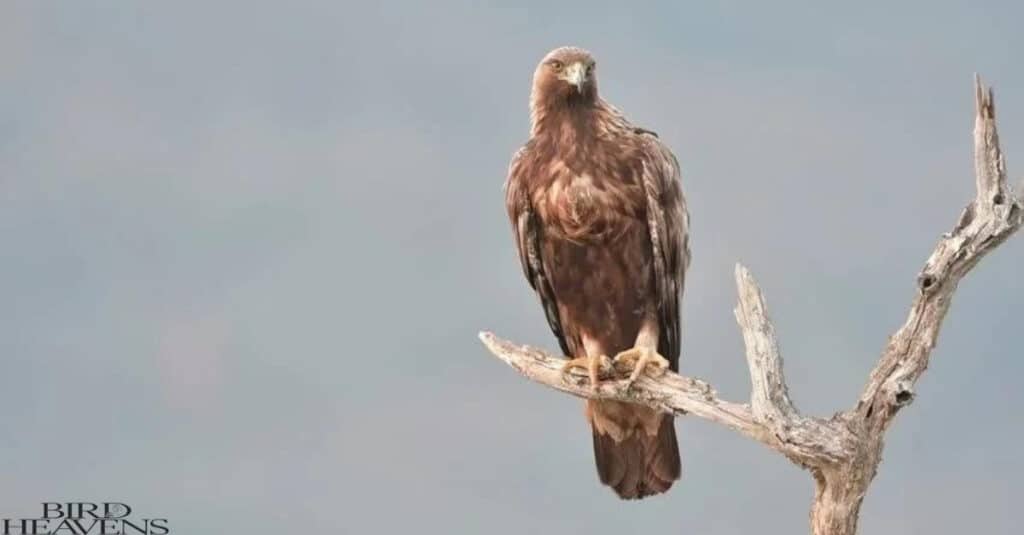
Nighttime Activity Levels:
While hawks aren’t actively hunting at night, they’re not completely zonked out either. Here’s what might be going on:
- Light sleep: Hawks remain somewhat alert to potential dangers.
- Occasional movement: They might shift position or stretch their wings.
- Rare flights: In very unusual circumstances, like if startled by a predator, a hawk might fly short distances at night.
You Might Like >>Herons In Michigan
Why Don’t Hawks Hunt At Night?
Now that we know hawks are diurnal hunters, let’s dig into why they don’t hunt at night. It’s not just about their eyesight – there are other factors at play too.
Prey Availability and Its Impact
Hawks have evolved to hunt when their preferred prey is most active. Let’s look at some common hawk prey and their habits:
| Prey Type | Peak Activity Time | Hawk Species That Hunt Them |
| Small mammals (mice, voles) | Dawn and dusk | Red-tailed Hawk, Cooper’s Hawk |
| Birds | Daytime | Sharp-shinned Hawk, Goshawk |
| Reptiles | Daytime (when warm) | Red-shouldered Hawk, Harris’s Hawk |
| Insects | Varies (mostly day) | Broad-winged Hawk, Swainson’s Hawk |
As you can see, most hawk prey are out and about during the day. This makes daytime the most efficient time for hawks to hunt.
Hawks have co-evolved with their prey. Their activity patterns are closely matched to when their food is most available-Dr. Mark Raptor.
Energy Efficiency:
Hunting at night would be an uphill battle for hawks. Here’s why:
- Poor vision: Hawks would waste energy flying around without being able to spot prey effectively.
- Competition: Nocturnal predators like owls are better adapted for night hunting.
- Increased risk: Hawks are more vulnerable to their own predators in the dark.
By sticking to daytime hunting, hawks conserve energy and increase their chances of success.
You Might Like >>How Long Do Quail Live
Comparisons Of Diurnal to Nocturnal Raptors
To really understand why hawks don’t hunt at night, it helps to compare them to birds that do – like owls.
Key Differences from Owls:
Owls and hawks might both be birds of prey, but they’re built very differently:
- Eyes: Owl eyes are huge and designed to gather as much light as possible. Hawk eyes are smaller and optimized for daytime vision.
- Hearing: Owls have asymmetrical ear openings that help them pinpoint prey by sound. Hawks rely much more on sight.
- Feathers: Owls have special “silent” feathers for stealthy flight. Hawk feathers aren’t adapted for noise reduction.
- Head movement: Owls can turn their heads almost 270 degrees to scan for prey. Hawks have a more limited range of motion.
Why Hawks Aren’t Adapted for Night Hunting?
Evolution has shaped hawks for daytime success, not nocturnal adventures. Here’s what they’re missing for night hunting:
- Light-gathering adaptations: Hawks lack the large pupils and reflective eye structures that help owls see in low light.
- Specialized hearing: Without owl-like hearing, hawks can’t locate prey by sound alone.
- Silent flight: Hawk wing structure isn’t designed for the silent approach needed to catch prey in the dark.
You Might Like >>Small Black Bird With White Belly
The Cooper’s Hawk:
The Cooper’s Hawk is a common forest hawk, good at chasing birds through thick trees because it’s fast and can turn quickly.
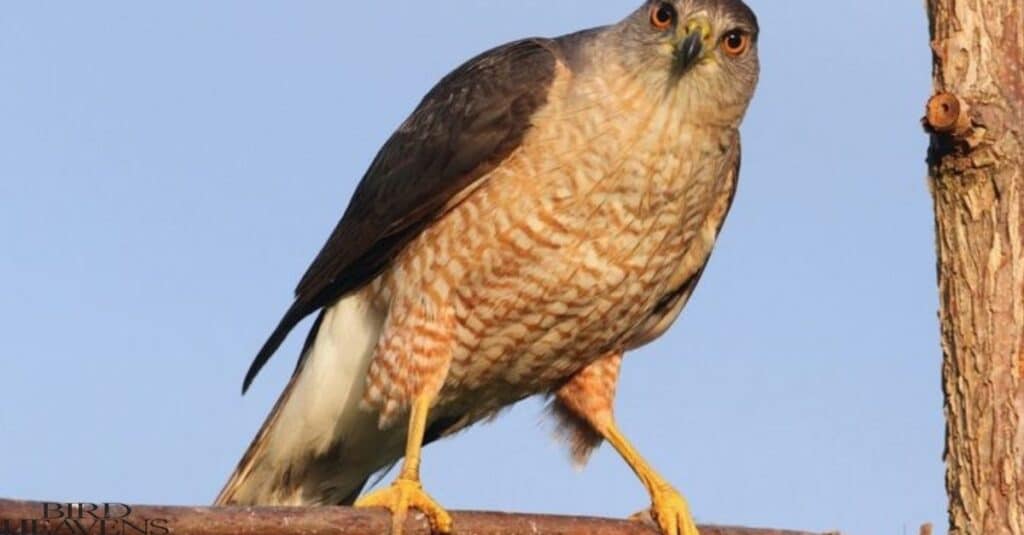
Let’s compare its skills with a nighttime hunter, the Barn Owl.
| Feature | Cooper’s Hawk | Barn Owl |
| Eye Size | Moderate | Very large |
| Pupil Dilation | Limited | Extensive |
| Retinal Rod Cells | Fewer | Numerous |
| Hearing Adaptation | Standard | Highly specialized |
| Flight Noise | Normal | Nearly silent |
| Active Hunting Hours | Daylight | Night |
You Might Like >>Finches In Texas
Conclusion:
Hawks do not usually hunt at night because their eyes are made for daylight, not darkness. Most of their prey is also active during the day.
Hunting at night would be risky and inefficient for them. Hawks have evolved to hunt during the day, using their sharp vision and flying skills. While you might see a hawk at night, it’s likely just moving around, not hunting. They are true masters of daytime hunting.
Let’s wrap this article up by reviewing some key points:
- Do hawks hunt at night? No Explanation: Hawks are diurnal raptors, active and hunting during daylight hours.
- Can hawks see well in the dark? No Explanation: Hawks lack adaptations for night vision, such as numerous rod cells.
- Are hawks’ eyes adapted for daytime hunting? Yes Explanation: Hawks have sharp color vision and high density of light-sensitive cone cells for excellent daytime sight.
- Do hawks roost at night? Yes Explanation: Hawks find safe, high perches to rest during nighttime hours.
- Are hawks and owls equally adapted for night hunting? No Explanation: Owls have specialized adaptations for night hunting that hawks lack, such as large eyes and silent flight feathers.

Andrew Paul is a renowned ornithologist and founder of Bird Heavens. With my extensive expertise in bird behavior and habitat preservation,I will insightful content on species identification and conservation.My Future plans include interactive workshops and online courses to foster a global community of bird enthusiasts committed to conservation and appreciating avian life. Join me at Bird Heavens




